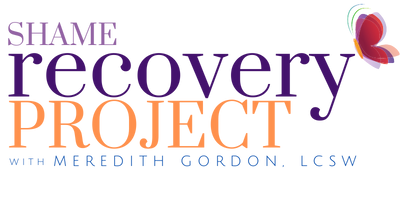Many of us feel shame after trauma. Trauma puts us in a vulnerable state. Some—if not all—of the shame you feel related to the traumatic event likely does not belong to you.
Those who perpetrate the trauma are the real owners of the shame. But as “victim” (I use this word very sparingly, and more as an indicator that one was NOT the perpetrator) you are susceptible to holding the other’s shame. You don’t even realize what’s going on, that’s how potent the shock you are in is. But in this state of shock and survival (during the trauma and soon after it) the shame the other has “transmitted” via their act/transgression gets lodged in you. This is also called scapegoating. We think of scapegoating as being mostly a conscious act, but in reality it is insidious as well. Just like the shame you may be feeling about something you did not do.
Questions to help you suss out what, if any of it, belongs to you. Asking if shame belongs to you is a crucial question after trauma:
- Did you perpetuate the trauma?
- Were you the abuser?
- Do you have real agency, meaning, in this case, that you are not under the effects of another’s manipulations, coercion, or attacks? It is an important step to awaken to the fact that it is not your job or in your ability to carry the abuser’s shame as though it is your own. NOTE: I recommend not sharing this information with someone manipulative or potentially violent. There is no need to stoke the fire or put yourself in a dangerous position.
- Have you blamed yourself for what happened to you at the hands of someone else?
- Are you ashamed to talk about what was done to you?
- Have you tried to not feel shame but end up feeling more ashamed because you can stop feeling embarrassed or ashamed of what happened to you?
If you answered “yes” to any of these, it is likely that you are carrying another’s shame (and responsiblity) about what happened/what they did. Things that can help:
- Read about shame, and notice it in the news, on TV and radio—see shame “out there,” too. Seeing shame “out there” and how it affects others can be helpful in recognizing the subtle signs of it in our own lives…when we take it on, when it’s being heaped on us, when we need to observe a pattern we want to extricate ourselves from.
- Keep a journal to jot down thoughts as they arise. It can help you identify patterns within yourself and with others around you.
- Stop and notice your reactions in situations with people with whom you feel comfortable and at ease versus those with whom you feel ashamed. Can you pinpoint when the ill ease began? Can you imagine withdrawing energy from encounters with thsoe people?
Finally, understand that:
Emotional manipulation, crime, sexual or physical assault, coercian, meanness, cruelty, systemic injustice and harrassment are all traumas that you never ever need to feel shame about having endured. But as a victim/survivor, you likely have. I know I have.
What you must do is give back that shame to its real owner. Or owners. It might be one person or a family or a collective. It is not your shame but, yes, you’ve been charged with carrying it. Because it is not yours, it is impossible to fix. The only way to “cure” it is to give it back (reread paragraph 1, above, which explains part of the shame dynamic).
Remember: If you didn’t “do it” then the shame of “it” does not belong to you.
Photo by Isaiah Rustad on Unsplash
